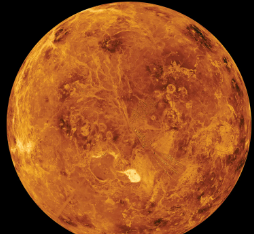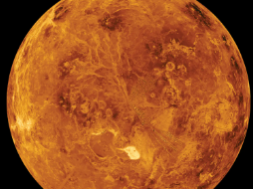
NEW DELHI, Sept 27: With the Chandrayaan mission accomplished after soft landing the lander and rover which also successfully roved over 100 meters on the Moon, the Indian Space Research Organisation (ISRO) has now set its sight at the brightest planet on the earth solar system, Venus.
Addressing the Indian National Science Academy in Delhi on Wednesday, the ISRO chief S Somanath confirmed that India’s mission to Venus has been configured. The payloads for the mission have already been developed, marking a significant milestone in India’s space exploration endeavours. The primary focus of the mission was to study the surface and atmosphere of Venus, which is notoriously thick and filled with acids. The atmospheric pressure on Venus is about 100 times that of Earth, making it a challenging environment for exploration, he said.
The mission, unofficially known as Shukrayaan, from Sanskrit words Shukra (Venus) and yana (craft, vehicle), is expected to be launched in the coming years. The ISRO chief highlighted the importance of understanding Venus, stating, “Venus is a very interesting planet. It also has an atmosphere. Its atmosphere is so thick. You cannot penetrate the surface. You don’t know if its surface is hard or not.”
He further added that studying Venus could provide crucial insights into the future of our own planet. “Earth could be one day Venus. I don’t know. Maybe 10,000 years later we (Earth) change our characteristics. Earth was never like this. It was not a habitable place long long back,” he said.
The Venus Orbiter Mission will follow in the footsteps of other international missions to Venus planned by NASA and the European Space Agency (ESA) in the 2030s. These missions aim to gather data on the atmospheric descent and conduct orbital observations of the planet.
The ISRO’s mission to Venus signifies India’s growing prominence in space exploration. With this mission, India joins a select group of nations that have embarked on interplanetary missions, underscoring its commitment to advancing scientific knowledge and understanding of our solar system.
India has previously launched an interplanetary mission to Mars. The Mangalyaan mission proved successful as it orbited the Red Planet and delivered pictures and scientific data.
(Manas Dasgupta)














